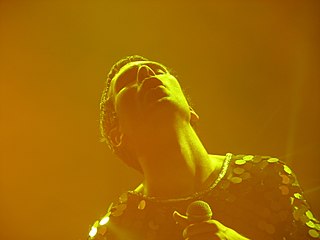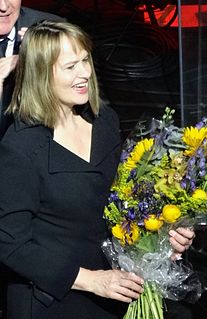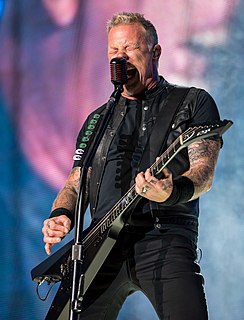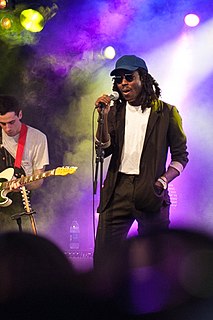A Quote by Jamaica Kincaid
The sound of words in a novel is a pretty amazing thing, and I am concerned with the sound of every word I write.
Related Quotes
There's a difference between writing, the written word, and music. When you have the blank page it doesn't make a sound, which is like what happens to me every night when I'm playing. There is that crazy moment: the first mark you make on the page. But sound can inspire sound, in a way that words can't inspire words - at least for me. The nature of sound itself is still a huge mystery to me. I'm very happy about that.
In the speech sound wave, one word runs into the next seamlessly; there are no little silences between spoken words the way there are white spaces between written words. We simply hallucinate word boundaries when we reach the end of a stretch of sound that matches some entry in our mental dictionary.
Sound words can't be understood through formal study of the language alone. They're felt when you immerse yourself in the culture or lifestyle that becomes a part of you. The Japanese language is abundant with onomatopoeia. Even though I've lived in Japan a long time, sound words are still an uncertain territory. And I think new words are being created every day. Even when I don't know a word I can sometimes connect it to a meaning using the sensations produced by the sounds, which feels like I'm playing with words.
The way it works for me is my sight and sound senses are combined. Every sound I associate with a color and every color I associate with a sound... The way I see things is constant streamers across the room, bouncing off from every touch and every sound. Over the years, I've learned what color palates I love most.
When we sit in meditation and hear a sound, we think, 'Oh, that sound's bothering me.' If we see it like this, we suffer. But if we investigate a little deeper, we see that the sound is simply sound. If we understand like this, then there's nothing more to it. We leave it be. The sound is just sound, why should you go and grab it? You see that actually it was you who went out and disturbed the sound.
Silence is Golden; it has divine power and immense energy. Try to pay more attention to the silence than to the sounds. Paying attention to outer silence creates inner silence: the mind becomes still. Every sound is born out of silence, dies back into silence, and during its life span is surrounded by silence. Silence enables the sound to be. It is an intrinsic but unmanifested part of every sound, every musical note, every song, and every word. The unmanifested is present in this world as silence. All you have to do is pay attention to it.
Each time I write, each time the authentic words break through, I am changed. The older order that I was collapses and dies. I lose control. I do not know exactly what words will appear on the page. I follow language. I follow the sound of the words, and I am surprised and transformed by what I record.
When you get an idea, so many things come in that one moment. You could write the sound of that idea, or the sound of the room it's in. You could write the clothes the character is wearing, what they're saying, how they move, what they look like. Instead of making up, you're actually catching an idea, for a story, characters, place, and mood - all the stuff that comes. When you put a sound to something and it's wrong, it's so obvious. When it's right, the whole is greater than the sum of the parts. That's a magical thing that can happen in cinema.







































